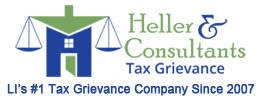Commercial real estate transactions are on the increase and the volume is expected to reach a new high in 2016. Because of this, a lot of owners have started to research this trend and the way their buying price is going to influence their commercial property tax. We have a lot of potential buyers that get in touch with our office and request our expertise to analyze their tax burden if they decide to sell. When reviewing a property purchase and its property tax situation, there are actually quite a few things to bear in mind. In the paragraphs below, we’re going to take a closer look at some of the most popular questions and focus on misconceptions about assessments and purchase prices.
Will my property taxes go up as a result of my purchase price?
A portion of our clients has contacted us with concerns that after the sale, their assessed value and corresponding property taxes are going to increase. Because of that, it’s important to keep in mind that the purchase price differs from one jurisdiction to another. For instance, there are no more yearly reevaluations performed by Nassau County anymore, but they do however plan on performing a reevaluation for the assessment roll in 2018. Therefore, if a property is found to be a part of the jurisdiction performing the reevaluations then, the sales price will definitely be considered during the process.
Also, it’s very important that the factors surrounding the sale are carefully considered prior to raise the assessment to the purchase price. It’s vital that the counsel informs the assessors about these factors and offers evidence as to why they need to be reviewed in accordance with the buying price.
There are many jurisdictions that haven’t performed reevaluations for many years and in these types of cases, the assessor won’t be able to raise the assessment as a result of a sale. It’s true that there may be cases when the property has been under-assessed, but even then the assessor cannot alter the assessment. If he does, then this is going to result in what is known as a selective reassessment. According to info form the highest court in the state, if a property is going to be reassessed based on its sale price in these jurisdictions, the assessment should be returned to its initial value because this change is illegal.
Will I get lower taxes if my buying price is below the assessment?
In this case, you need to file a grievance which is going to be reviewed by the assessor. He is going to check the property and also its claimed assessment. The assessor will require proper documentation, but also some information about the factors that influence the sale in order to make a decision on whether the sale was performed properly. After such a determination, those who’ve bought an over-assessed property will be able to save a lot on taxes.
What else could influence the assessor’s opinion?
In order to ensure that the seller and buyer aren’t related in any way, the assessor needs to review the closing documents and contract of sale. Counsel needs to also explain to him any extra considerations that may have impacted the transaction. For instance, a 1031 exchange makes it easy for homeowners to defer capital losses or gains due upon sale, as long as the property is received in 6 months or one hundred and eighty days. Buyers whose 1031 benefits are almost expired are certainly going to pay a higher purchase price for a home rather than risk seeing their 1031 period expire. If the assessor isn’t aware of this vital info, then he’s going to be unable to consider it into their determination.
In the same way, property bought so that it can be used can impact the price paid. This is an even more important factor if the buyer occupied the home before buying it. In this case, the intangible value of a familiar location, not colleagues and clients, possible loss of staff and the price of moving may convince a current occupant to pay more for the property. Because of that, it’s important that such factors are presented to the assessor as vital elements in the buying price.
The assessor also wants to ensure that the sale wasn’t distressed and that the property was sufficiently exposed to the market. It’s true that bank sales are usually distressed, but the recession greatly impacted the way some banks shed assets. In fact, many of them have great relationships with the real estate community, making it a lot easier for them to market assets. Still, bank sales can still sound the alarm on a distressing situation. Because of that, property owners need to find a way to prove to the assessor that the price of their property is in line with the market value.
All the factors we talked about have to be considered in accordance with their specific jurisdiction.
